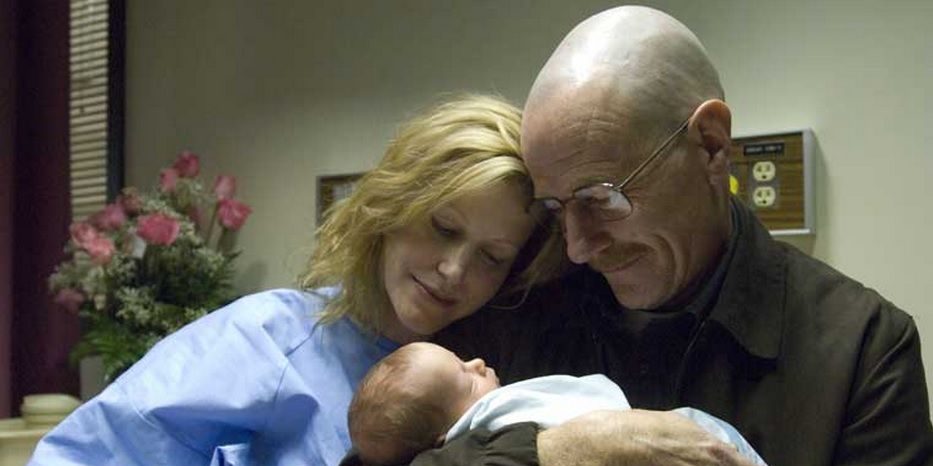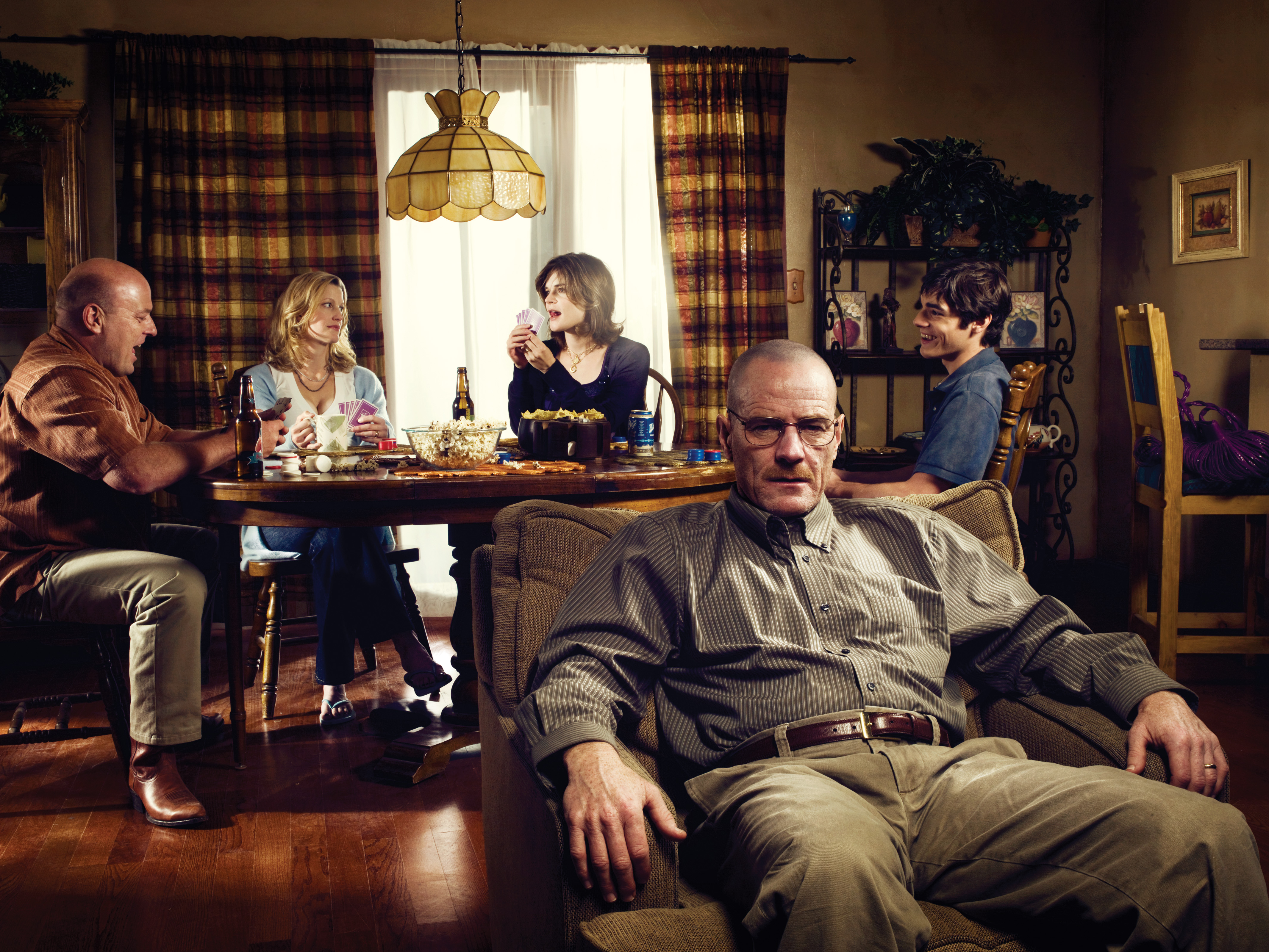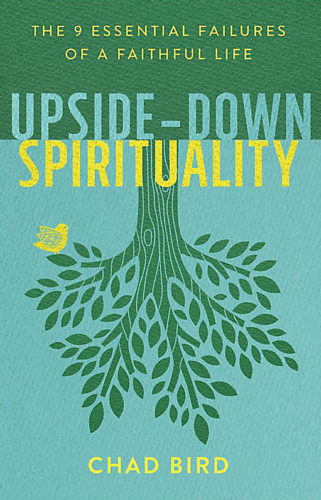
Another peek into the Family Issue, which is available now. If you’d like more to sample, there’s Ethan’s Opener here, and the special episode of The Mockingcast, here.
This article was adapted from Chad Bird’s newest book, Upside-Down Spirituality, available wherever books are sold.
Gathering dust in the far western portion of Texas is a 1.5-square-mile town skirted by vast fields of cotton. Pump jacks, like neo-pterodactyls, squat in these same fields, moving their iron heads up and down, up and down, sucking up black gold. If there are faces only a mother can love, then I suppose there are towns only a local can love. And this tiny, wrinkled town of Seagraves is one of them.
Turn off the main highway, bounce along a couple of unpaved streets, and you’ll pull up in front of a weathered garage. Step inside, however, and you’ll see it’s no garage at all. Once, long ago, it was someone’s home. A single-room house. A kitchen to your right, a combination sitting and sleeping area to your left. A bathroom tacked onto the back of the house completes the structure. Here, in the 1940s and early 1950s, a family of four shared meals, shared problems, shared laughter and tears.
I don’t know who built this house, but I do know whom this house built. It built a boy who loved quarter horses and baseball. It built a boy who, early on, learned that callouses on his hands were a necessity if you were going to make it in this world. It built a boy whose sole dream was to marry and raise a family and own a little house and a few acres of his own. Within these walls his earliest memories were made. Here he watched his own mom and dad struggle to pay the bills and put food on the table. Ensconced within this house, once a home, is the history and architecture of his soul. This house built my dad.
Heroic Parenting
My father will be 78 years old this year. I’m 48, and my son is 18. Three men, three generations, three very different houses that built each of us. My father grew up in one, I grew up in two, and my son and daughter—well, they’ve grown up in more than I care to count. My son was 6 years old, my daughter 8, when their mom and I divorced. Over the next several years, change was the only constant in their young lives. From Grandma’s house, to a rent house, to another house, to an entirely different city with another two houses. The zip codes piled up. If I’ve counted correctly, a total of nine houses have built my children. And on these houses is painted the graffiti of troubled pasts. This is their mom’s second marriage, their step-dad’s third. And this is my third marriage, and my wife’s second. I can’t help but wonder—and tremble—at how all these homes have shaped the architecture of my own children’s souls.
In other words, like most parents, I worry about the extent to which my shortcomings have shortchanged their upbringing. I lug around an oversized suitcase stuffed with blame for the countless ways I haven’t measured up. It doesn’t matter that my children, despite their tumultuous young years, have both turned out academically successful, emotionally stable, and remain in loving relationships with their mom and me, as well as their step-parents. There is still that heart-piercing “but.” But I broke apart their family. But I created a storm they had to endure. But I didn’t provide them with a divorce-free, fidelity-keeping, every-night-around-the-dinner-table, Mayberry kind of home that I myself grew up in. If only I’d been a more heroic parent, some semblance of an Über-dad, or at least an above-average father, then they would not have been wounded by the shrapnel that resulted from the explosion my own ego ignited.
Unless you’re a rather unusual parent, you’ve erected a pulpit in your own heart from which you preach similar finger-wagging sermons to yourself. Your children may be all grown up and may lead relatively stable, successful lives, but, you still remember “that move” or “that relationship” or “that huge, stupid mistake” that marred their childhood. If you’re raising children now, you worry about making a mess of things, not doing enough for them, not providing enough, not raising them just right, not getting them into just the right schools, failing them in a million ways. You look around at the house that’s building your son, your daughter, and hope to God that the tales absorbed into these walls are outstanding ones, that your children grow up and tell their friends or future spouses what an awesome parent you’ve been. Of all the commandments, you want “Honor your father and your mother” to come naturally and easy to your children.

We are propelled by the all-consuming desire to be perfect, heroic, A+ parents. Some of us who are older, if we’ve scored a D- in parenting our children, decide we’ll make it up by being the coolest, most generous, sweetest grandmas and grandpas the world has ever witnessed. We’re like Mr. Osborne in the novel Vanity Fair, who “tried by indulgence to the grandson to make up for harshness to [the son].” Atonement for subpar parenting by superb grandparenting seems to be a relatively common self-salvation project. However we go about it, we’re striving to build bigger houses that build better children. Be perfect parents or perfect grandparents. One way or another, our children will see us as a success. Who knows, maybe even God will come around to seeing us that way, too.
I hope not. I pray God will make us all utter failures in our heroic parenting and grandparenting crusades. Here’s why.
Straining Toward Divinity
You may recall this quote from a couple of years ago. On the Facebook page “Be a Fun Mum,” Bunmi Laditan told us “How to be a Mom in 2017.” She wrote,
Make sure your children’s academic, emotional, psychological, mental, spiritual, physical, and social needs are met while being careful not to overstimulate, understimulate, improperly medicate, helicopter, or neglect them in a screen-free, processed foods-free, GMO-free, negative energy-free, plastic-free, body positive, socially conscious, egalitarian but also authoritative, nurturing but fostering of independence, gentle but not overly permissive, pesticide-free two-story, multilingual home preferably in a cul-de-sac with a backyard and 1.5 siblings spaced at least two years apart for proper development also don’t forget the coconut oil.
Then she added this: “How To Be A Mom In Literally Every Generation Before Ours: Feed them sometimes.”
The post rapidly went viral. And with good reason. In those 100 words, Bunmi Laditan, like the child in the fairy tale, had the audacity to point out that the emperor had no clothes on. She revealed the naked truth: how utterly laughable, controlling, prideful, heroic, impossible, and vain so much modern parenting has become. If you want to qualify as a really good mom or dad today, simply being human won’t make the grade. You’ve got to graduate to godhood. Be omnipresent in your child’s life, omnipotent so as to give them every little thing they need, and omniscient enough to know precisely what to do in every conceivable parenting situation.
The downside of this attempted apotheosis is this: every time humans start straining toward divinity, we inevitably end up slumming in sub-human ways. We end up “Heisenberging.”
Heisenberging
In AMC’s award-winning television series Breaking Bad, Walter White (aka “Heisenberg”), a high school chemistry teacher, may be moonlighting by cooking and selling meth, murdering people who get in his way, and lying through his teeth to just about everyone around him, but he would look you straight in the eye and insist that everything he’s doing, he’s doing for the best of reasons: for his family.
All the cash he’s making will take care of them after his recently diagnosed lung cancer takes his life. In his mind, Walter envisions himself wearing a cape. He’s heroically doing what he thinks a man should do, indeed, must do, for his wife and family. He may be “breaking bad” in the eyes of the law, but he’s breaking his back in doing good for those he loves. Later in the show, while cradling his baby daughter, Walter pulls back some insulation to reveal two huge stockpiles of cash, hundreds of thousands of dollars, hidden away in the wall. “That’s right,” he coos to his daughter, “Daddy did that. Daddy did that for you.”

Only he didn’t. That’s just a smokescreen. He didn’t do all this because he’s such a loving, sacrificial, heroic daddy. Walter imagines himself to have graduated to godhood. He explains it to his partner with three words: “I am awake.” When cancer and the threat of death are discovered, rather than rousing him to the need for humility, faith, and love as a mortal man, they awaken him to a god-like potential, a prideful usurpation of his “destiny,” and an uncompromising drive to beat death at its own game by leaving behind such an impressive material legacy that he will live on in the memory of his family. Instead of the imminence of the grave breaking his arrogant heart, it hardens it like adamantine.
We may never engage in Heisenberging in such an obvious, monumental way. We may remain upstanding, law-abiding citizens. Head of the PTA. Cubmaster of a local Boy Scout’s pack. Sunday School teacher. But as parents, there’s a diminutive Walter White running around inside our skulls, shouting, “Be awake! You need to be a tiger mom. You need to be an extraordinary dad. Your kids deserve the very best. Everything depends on your parental performance. Wake up and realize that one day you’ll be dead, and you want your kids to look back on you as superhuman, as an incredible parent who bent over backwards to provide them with an ideal childhood.”
In other words, our inner-Heisenberg urges us toward infinitely more than “feeding our children sometimes.” We must pretend we’re demigods, super-parents. We must point to our own “piles of cash,” whatever that legacy might look like, and boast to our children, “That’s right. Mommy and Daddy did that. Mommy and Daddy did that for you.”
Lurking in the background of much modern, perfectionistic parenting is such Heisenberging. Or what G. K. Chesterton in Orthodoxy called the most horrible religion: “worship of the god within.” And the result: we act in less than human ways. And that’s why the best destination for crusades to be super-moms and super-dads is failure. Because it’s in that failure that the Spirit of God begins his work of rescuing us from ourselves, unmasking the inner gods as imposters, and pointing our feet down paths that look like failure but promise a true version of success—God’s success.
Plain Old Boring Moms and Dads
God knows that if there’s anything our world needs, it’s certainly not more super-parents. We need plain old boring moms and dads. The kind who are more concerned with modeling humble, loving service to their children than hothousing them into super-babies who out-SAT and out-GPA their classmates. The kind of parents who are more concerned with teaching their children “the joy of tasting tomatoes, apples, and pears,” as William Martin writes in The Parent’s Tao Te Ching, than the thrill of guzzling the intoxicating liquor of success. The kind of parents who are utter failures at perfectionism, at being heroes and heroines, at maintaining complete control of their child’s upbringing—in short, who fail at being gods—in order that the grace of God might succeed in our lives as moms and dads as well as in the lives of our children.
 Most of all, we need the kind of parents who see their primary identity not as parents but as children. Before we are fathers, we are the sons of God. Before we are mothers, we are the daughters of God. Before we are anything else—parents, spouses, workers, citizens—we are children of our heavenly Father, adopted through Christ into a heavenly family. That foundational identity, based solely on grace, can then form our other identities and vocations in this life.
Most of all, we need the kind of parents who see their primary identity not as parents but as children. Before we are fathers, we are the sons of God. Before we are mothers, we are the daughters of God. Before we are anything else—parents, spouses, workers, citizens—we are children of our heavenly Father, adopted through Christ into a heavenly family. That foundational identity, based solely on grace, can then form our other identities and vocations in this life.
We don’t wear capes but the righteousness of Jesus. We aren’t tiger moms but the Father’s lambs. We aren’t training superkids but beloved sons and daughters of the King.
The greatest gift that we can give our children is mercy. Don’t get me wrong–morality is important. As are education and rules and discipline and a thousand other aspects of parenting. But there is absolutely nothing necessarily Christian about any of these. But the mercy and grace of Christ? That’s the heartbeat of Christianity. That’s what Christian parenting is ultimately all about: the failure to be supermoms and superdads and the success of living as fellow heirs, with our children, of the love our Father.
The house that builds each of us—fathers, mothers, sons, daughters—is the house of grace, built from the wood of a Roman cross, decorated with the holiness of the Spirit, and inhabited by the Father who holds us all in his lap of mercy. The table overflows with the sweet desserts of the kingdom of God. The foundation will never crack. The roof never leaks. This is the house that Jesus built, the house that builds our lives, our loves, our identities. It is a house for failures who are beloved of the Father, in whom he rejoices as only an Abba can.
Blessed are those who fail at being supermoms and superdads, for they are forgiven children of our Father in heaven.
Order the Family Issue!

COMMENTS
Leave a Reply












